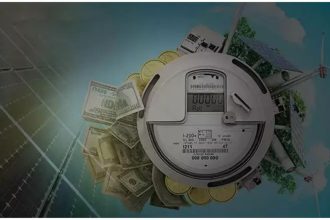On Friday, the federal cabinet green-lighted an ordinance eliminating the 15% extra tax on banks’ profits from government loans. In return, banks’ standard income tax rate was raised to 44% to recapture most tax revenue.
The Income Tax Amendment Ordinance 2024 abolishes the 10-15% additional tax on banks lending beyond a certain threshold to the government. To compensate, the standard income tax rate for banks has been:
- Increased from 39% to 44% for the current tax year ending December 31, 2024.
- Reduced to 43% in 2026 and 42% in 2027 and beyond.
This adjustment will generate Rs65 billion in additional revenue before December 31.
The ordinance formalizes an agreement between the government and the Pakistan Banks Association. Finance Minister Ishaq Dar led the negotiations, ensuring the tax burden shift did not hurt government revenues. Earlier attempts to waive the tax in June failed due to public scrutiny, prompting banks to increase private lending to avoid the levy.
Read: FBR Falls Short of November 2024 Tax Collection Goals
According to government sources, despite the higher standard tax rate, banks stand to benefit as the full recovery rate exceeds 45%. Two additional provisions have been added to the Seventh Schedule of the Income Tax Ordinance to clarify tax liability and exempt banks from the 15% levy starting in 2025.
The Federal Board of Revenue (FBR) faces a revenue shortfall, having collected Rs5.08 trillion by December 27. It must meet the Rs6.009 trillion target by December 31 to comply with IMF conditions.
Minister of State for Finance Ali Pervaiz Malik stated:
“This is a reasonable deal to encourage capital formation. The government hopes banks will lend voluntarily to the private sector.”
The ordinance also provides legal cover for the tax waiver issued in 2022 and its suspension in 2023.
The additional income tax, introduced in 2022, aimed to push banks toward lending to industries rather than relying on government debt. Previously, banks manipulated their Advance-to-Deposit Ratio (ADR) to reduce tax liability. The new changes:
- Adjust ADR thresholds to simplify taxation.
- Eliminate loopholes exploited by banks to evade taxes.






